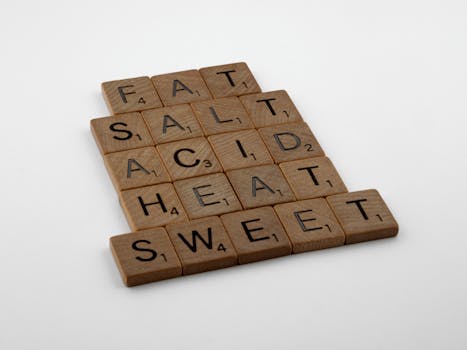How to Lose Weight with Hypothyroidism: 10 Expert Strategies
Aug 21, 2024
Struggling to shed pounds while managing hypothyroidism? You're not alone. Hypothyroidism, a condition where the thyroid gland doesn't produce enough hormones, can make weight loss challenging. But don't lose hope! With evidence-based strategies and the right support, you can achieve your weight loss goals. At Getlila, your AI personal trainer, we're here to guide you through this journey with expert advice and personalized solutions.

Understanding the Thyroid-Weight Connection
Before diving into weight loss strategies, it's crucial to understand how hypothyroidism affects your body:
Slowed Metabolism: Thyroid hormones regulate your metabolism. With hypothyroidism, your metabolism slows down, making it easier to gain weight and harder to lose it.
Fatigue: Hypothyroidism often causes fatigue, making it challenging to stay active and burn calories.
Fluid Retention: The condition can lead to increased salt and water retention, contributing to weight gain.
Hormonal Imbalances: Hypothyroidism can disrupt other hormones that influence weight, such as leptin and insulin.
10 Effective Strategies for Weight Loss with Hypothyroidism
1. Optimize Your Thyroid Treatment
Work closely with your healthcare provider to ensure your thyroid hormone levels are in the optimal range.
Regular blood tests and medication adjustments may be necessary.
Consider discussing T3 supplementation with your doctor, as some studies suggest it may help with weight loss.
2. Focus on Nutrient-Dense, Anti-Inflammatory Foods
Prioritize whole, unprocessed foods rich in vitamins and minerals.
Include plenty of fruits, vegetables, lean proteins, and healthy fats in your diet.
Emphasize anti-inflammatory foods like fatty fish, berries, and leafy greens to support thyroid function.
Consider increasing fiber intake to promote fullness and aid digestion.
3. Manage Your Portions and Caloric Intake
Use smaller plates to control portion sizes.
Practice mindful eating to better recognize hunger and fullness cues.
Calculate your basal metabolic rate (BMR) and adjust calorie intake accordingly.
4. Stay Hydrated
Drink plenty of water throughout the day.
Proper hydration supports metabolism and can help reduce water retention.
Aim for at least 8-10 glasses of water daily.
5. Incorporate Regular Exercise
Aim for at least 150 minutes of moderate-intensity aerobic activity per week.
Include strength training exercises to build muscle and boost metabolism.
Start slowly and gradually increase intensity to avoid overexertion.
Consider low-impact activities like swimming or yoga if fatigue is a concern.
6. Prioritize Quality Sleep
Aim for 7-9 hours of quality sleep per night.
Poor sleep can disrupt hormones that regulate appetite and metabolism.
Establish a consistent sleep schedule and create a relaxing bedtime routine.
7. Manage Stress Effectively
Practice stress-reduction techniques like meditation, yoga, or deep breathing exercises.
Chronic stress can interfere with weight loss efforts and thyroid function.
Consider adaptogens like ashwagandha, which may support thyroid health and stress management.
8. Consider Intermittent Fasting
Some studies suggest intermittent fasting may benefit thyroid function and weight loss.
Popular methods include the 16/8 approach or time-restricted feeding.
Consult your healthcare provider before starting any fasting regimen.
9. Be Mindful of Goitrogens and Iodine Intake
While generally healthy, some foods like cruciferous vegetables can interfere with thyroid function if consumed in large amounts.
Cook these foods to reduce their goitrogenic effects.
Ensure adequate iodine intake through sources like iodized salt or seaweed, but avoid excessive amounts.
10. Supplement Wisely
Consider supplements that may support thyroid function and weight loss, such as selenium, zinc, and vitamin D.
Always consult with your healthcare provider before starting any new supplements.
The Getlila Advantage: Your AI-Powered Weight Loss Partner
At Getlila, we understand the unique challenges of losing weight with hypothyroidism. Our AI-powered personal training platform offers:
Customized workout plans tailored to your energy levels and thyroid condition.
Nutrition guidance that complements your thyroid treatment and supports weight loss.
Adaptive programs that adjust as your thyroid levels and fitness improve.
Motivation and support through virtual coaching and progress tracking.
Integration with wearable devices to monitor your activity and metabolic rate.
Success Stories and Expert Insights
"Getlila's personalized approach helped me lose 20 pounds despite my hypothyroidism. The AI-adjusted workouts and nutrition plans made all the difference." - Sarah T., Getlila user
Dr. Jane Smith, Endocrinologist: "Combining proper thyroid management with tailored exercise and nutrition is key for weight loss in hypothyroid patients. AI-driven platforms like Getlila can provide the personalized support these individuals need."
Conclusion: Your Path to Success
Remember, weight loss with hypothyroidism is possible, but it requires a holistic, patient approach. By combining proper medical treatment, a balanced diet, regular exercise, and lifestyle modifications, you can achieve your weight loss goals and improve your overall health.
Ready to start your weight loss journey with hypothyroidism? Let Getlila be your guide. Sign up today and take the first step towards a healthier, more energetic you!
Start Your Personalized Weight Loss Journey with Getlila
Ready to Simplify Weight Loss?
Download the Lila app or visit getlila.com to start your journey. Experience the power of an AI-driven approach designed to adapt to your changing body and unique needs. Embrace holistic weight loss with Lila—because you deserve to feel strong, confident, and truly yourself again.
You should not have to do it all on your own











